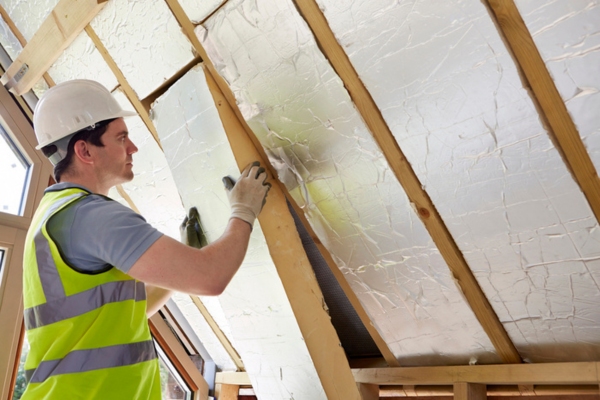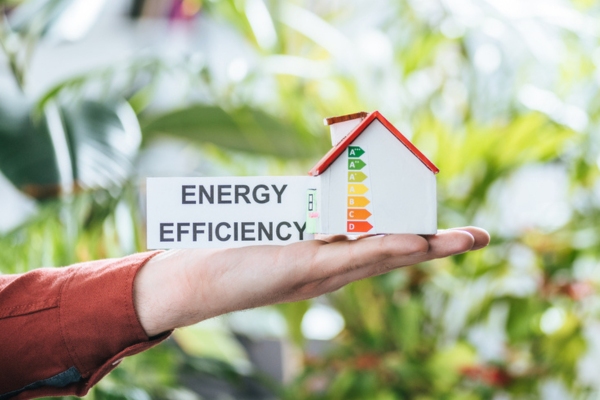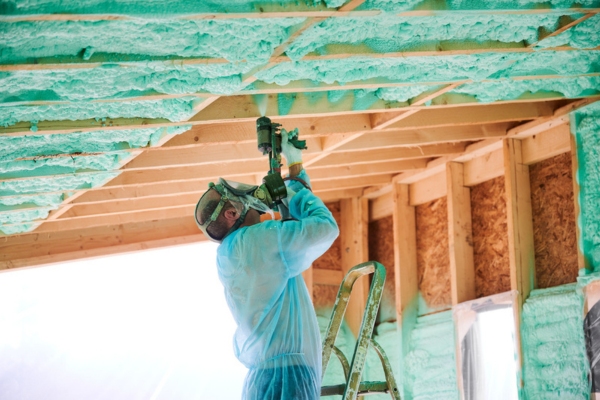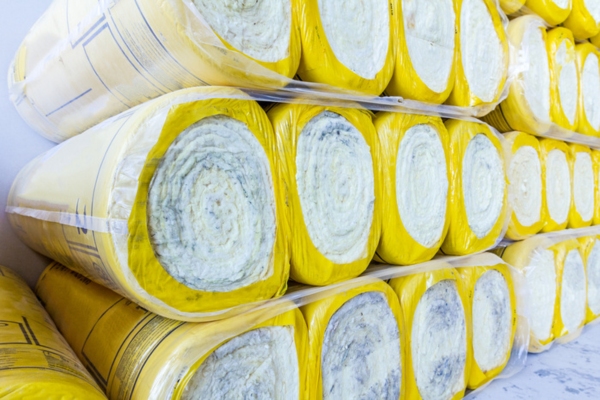Unlocking U-Value: Understanding Its Critical Role In Building Insulation

Building insulation emerges as a pivotal factor in minimizing heat transfer and reducing energy consumption in the pursuit of enhanced energy efficiency. The U-value is central to understanding insulation performance, a critical metric that quantifies the rate of heat loss through building materials.
As a leader in the industry, Ascend Construction specializes in delivering high-quality insulation solutions designed to optimize energy efficiency. This article delves into the importance of U-value in building insulation, exploring how it influences energy conservation and comfort in built environments.
What is U-Value?
Contents
Here’s all you need to know about U-Value:
Definition of U-Value

U-value is a key metric for measuring the thermal performance of building materials, quantifying how well they resist heat transfer. Expressed in watts per square meter per degree Celsius (W/m²°C), it measures the heat passing through one square meter of material per degree of temperature difference.
Lower U-Values indicate better insulation, reflecting a material’s capacity to block heat flow. This is closely tied to thermal conductivity, which assesses how easily heat moves through materials. Materials with low thermal conductivity and U-Values enhance a building’s energy efficiency by retaining heat in colder months and repelling it in warmer ones.
Ready to enhance your home’s insulation? Contact Ascend Construction today for a tailored consultation, and begin experiencing a more comfortable home!
Importance of U-Value in Building Insulation

U-Value is critical for architects, builders, and homeowners as it directly influences building energy efficiency, environmental impact, and indoor comfort. Lower U-values indicate better insulation, leading to significant energy savings by reducing heating and cooling needs. This lowers utility costs and cuts down on the environmental footprint by decreasing emissions related to energy production.
Additionally, optimal U-values ensure consistent indoor temperatures, enhancing comfort levels within buildings. Therefore, choosing the right materials with the appropriate U-value is key to economic and environmental sustainability and occupant comfort.
Measuring & Interpreting U-Value
Measuring the U-value is crucial for evaluating the thermal performance of building materials and ensuring compliance with energy efficiency standards.
How U-Value is Calculated
U-value is calculated by assessing each component layer’s thermal resistance (R-value) in a building structure, including materials and air spaces, and then taking the reciprocal of the total thermal resistance. Factors like material type and thickness significantly influence this value, reflecting the component’s ability to prevent heat transfer.
Standardized testing and certification are essential for ensuring accurate U-Value measurements. These processes guarantee that building materials meet uniform standards, providing reliable data for making informed decisions. Controlled testing environments simulate various thermal conditions to validate insulation performance, ensuring the U-values reflect real-world efficacy.
U-Value vs. R-Value: Understanding the Difference

U-value and R-value are critical metrics in building insulation, but they measure different aspects of insulation performance. The U-value is the heat transfer rate through a material or assembly; a lower U-value means better insulation, which signifies less heat loss. This is crucial for determining how well a building retains heat or stays cool.
On the other hand, the R-value assesses a material’s resistance to heat flow, with higher values indicating more effective insulation. It focuses on the ability of an insulating layer to resist heat passing through it.
Considering the U-value and R-value is essential when selecting materials because they provide a fuller picture of how the insulation will perform under different conditions, ensuring that buildings are energy-efficient and comfortable.
Take the initial step toward a more energy-efficient home! Reach out to Ascend Construction now to arrange a consultation and learn how our insulation solutions can lead to cost savings.
Comparing U-Values & R-Values: What to Look For

When evaluating U-values and R-values for building components like walls, roofs, and floors, knowing the benchmarks for good performance is crucial. Walls perform best with U-values around 0.20 W/m²K or lower, while roofs typically require even lower U-values due to direct exposure to environmental elements; floors may have higher U-values around 0.25 W/m²K, varying by ground temperature and building type.
Understanding these values involves considering local climate and building regulations. In colder regions, low U-values are vital for maintaining warmth and reducing heating costs, necessitating higher R-values.
In contrast, warmer climates require insulation with appropriate U-values and R-values to prevent heat ingress, balancing these metrics to meet regulatory standards, enhance energy efficiency, and ensure year-round comfort.
Building Regulations and U-Value
U-value is a critical factor in building regulations, serving as a benchmark for assessing the energy efficiency of structures.
U-Value Requirements in Building Codes
In local and national building codes, minimum standards for energy efficiency in new constructions and renovations are established, with U-Value playing a key role. These codes often specify maximum allowable U-values for different building components, like roofs, walls, and floors, to ensure they meet energy-saving and thermal performance criteria. Compliance with these standards is vital for obtaining building permits and certifications.
Achieving Compliance with High U-Value Standards

Ascend Construction helps achieve compliance with high U-Value standards through strategies such as utilizing advanced insulation materials and employing modern construction techniques. By conducting thorough professional assessments and ensuring meticulous installation, Ascend Construction guarantees that each project meets or exceeds the required U-value criteria, enhancing overall energy efficiency and building performance.
Call Ascend Construction for professional guidance and schedule a consultation to guarantee your home is optimally insulated for supreme comfort.
Enhancing Insulation with Optimal U-Values
Optimal U-values are essential for maximizing insulation effectiveness and overall building performance.
Material Choices and Their U-Values

Selecting the appropriate insulation material is vital to achieving optimal U-values and enhancing building energy efficiency. Ascend Construction provides several insulation options, each suited to different applications:
- Fiberglass Insulation: Often used due to its cost-effectiveness and versatility, fiberglass has U-values typically ranging from 0.32 to 0.40 W/m²K, making it ideal for both residential and commercial spaces.
- Spray Foam Insulation: Known for its excellent air sealing and moisture resistance, spray foam offers U-Values between 0.21 to 0.28 W/m²K, perfect for attics and crawl spaces.
- Cellulose Insulation: Eco-friendly and effective for retrofitting, cellulose matches fiberglass in U-value and is best for filling irregular spaces.
- Rigid Foam Board Insulation: These provide the best thermal resistance with U-values around 0.20 to 0.25 W/m²K, suitable for external walls and concrete applications.
Each material brings specific benefits such as environmental sustainability, superior thermal resistance, or affordability. Ascend Construction guides clients in choosing the right material based on project needs, ensuring energy compliance and effective insulation.
Long-Term Benefits of Optimal U-Value
Optimal U-values achieved through high-performance insulation from Ascend Construction can lead to significant energy savings and cost reductions. For instance, residential projects often see 20-30% annual energy savings, with clients like the Greenfield Residential Complex reporting a 25% reduction in energy costs after upgrading their insulation. These improvements translate into lower utility bills, enhanced property values, and a smaller environmental footprint, underscoring the substantial long-term benefits of effective insulation.
Enhancing Property Value and Comfort

Optimizing U-value in insulation enhances property value and living conditions by maintaining consistent indoor temperatures and reducing energy costs, increasing comfort and property desirability.
Additionally, optimal U-values help regulate indoor moisture levels, preventing mold and mildew growth and promoting healthier indoor air quality. This contributes to a more comfortable and healthier living environment, further elevating the property’s market value and occupant well-being.
Conclusion
U-value is pivotal in building insulation, directly influencing energy efficiency, cost savings, and comfort. With optimal U-Values, buildings can significantly reduce energy consumption, lower utility expenses, and enhance occupant comfort.
Ascend Construction remains at the forefront of this field and is committed to delivering superior insulation solutions that meet these essential standards. Their expertise ensures that every project meets and exceeds thermal performance expectations, contributing to a sustainable and economically beneficial built environment.
Contact Ascend Construction for Premier Insulation Services in Fort Collins, Colorado
When choosing a provider for air sealing and insulation upgrades, select one that combines professional expertise with competitive pricing, given the significant variations in quality and cost in the market. Ascend Construction excels as a leading choice, providing a wide array of services such as insulation removal and installation, air sealing, energy conservation measures, energy audits, and whole-house fan installations.
Opt for Ascend Construction for unmatched service that not only meets but exceeds your expectations, establishing a new benchmark for excellence in the industry. You can trust us to meet all your insulation needs with excellence. Contact us today for all your insulation needs and experience unmatched professionalism and quality.

Reach out to Ascend Construction for a complimentary consultation. Our team is ready to offer effective solutions for your home in Fort Collins, focusing on those critical areas needing attention. Our services are competitively priced, and we stand behind the quality of our work with a guarantee. For direct communication, click here or use the button below to call Ascend Construction. We provide free, no-obligation, in-home consultations to evaluate your needs thoroughly.
Ascend Construction
4115 County Road 19
Fort Collins, CO, 80524
(970) 420-5495
Related Articles:
- The Ultimate Guide to Insulating Your She Shed for Year-Round Comfort
- Cool Roofs & Insulation: A Dynamic Duo For Beating The Heat
- How Insulation Enhances Solar Panel Efficiency: A Synergistic Approach to Green Living
- Insulation for Allergen Reduction: Can Your Home Breathe Better?
- Renters’ Guide to Insulation: Tips for Improving Your Space Temporarily and Efficiently